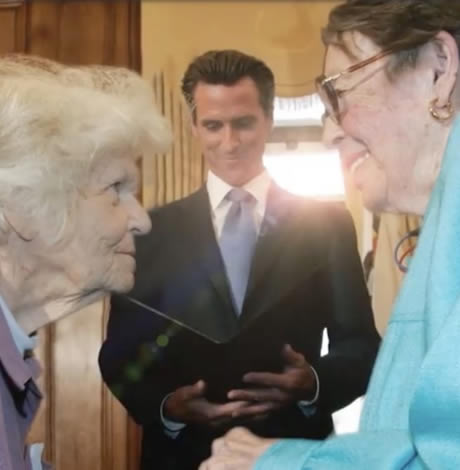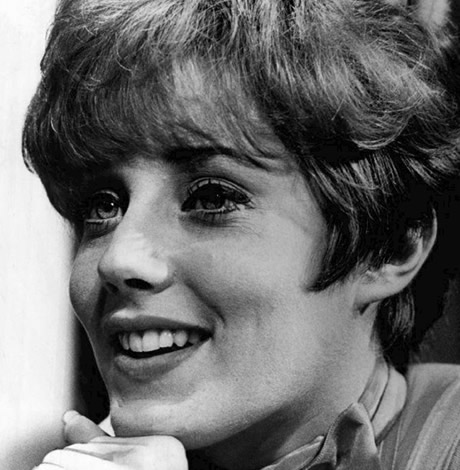Arts & Entertainment
‘In the Life’ celebrates 20 years
Groundbreaking TV series receives $1 million gift to mark anniversary
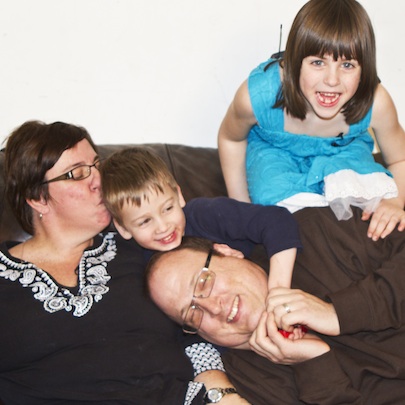
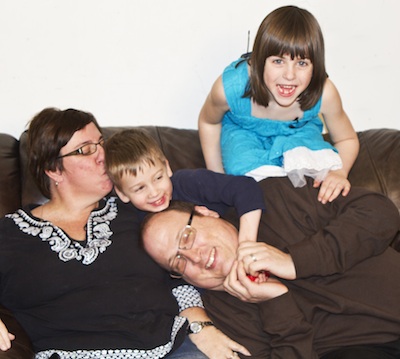
Maria and Brian Singer of Laurel, Md., and their children Lucas and Jackie, one of the families featured in ‘Becoming Me.’ (Photo courtesy of Brian and Maria Singer.)
The groundbreaking television series “In the Life” received an impressive gift for its 20th anniversary celebration — a $1 million donation from board co-chair and New York philanthropist Henry van Ameringen. This timely award gives the organization a chance to celebrate its milestone while planning for the next 20 years.
The media-shy Ameringen writes movingly about the importance of “In the Life” in a blog entry for the Huffington Post. The 82-year-old activist remembers growing up in a time when “the absence of images reflecting real gay life made it easy for people to assume we were everything bad that was said about us.” This was exacerbated when the AIDS epidemic struck the gay community in the 1980s and Ameringen, like many other LGBT activists, became politicized.
“Staying on the sidelines was impossible,” he writes. “The government was doing absolutely nothing to halt the spread of this disease nor help those who were suffering. AIDS was seen as a ‘gay disease,’ and with so few positive portrayals of gays in the media, and far fewer gay people being out at the time, most Americans believed all the stereotypes they had heard about us.”
However, the premiere of “In the Life” in 1992 contributed to the change in the media and political landscape. Ameringen notes, “The simple fact that there was a television program, airing on public television stations around the country, that represented LGBT people in such a genuine and accurate manner was stunning.” Veteran media expert and activist Cathy Renna says, “‘In the Life’ has become the ‘60 Minutes’ of LGBT journalism” and credits the show for creating a large and diverse audience for LGBT stories.
Michelle Kristel, executive director of In the Life Media, says that quality and content have been the key to the program’s longevity.
“In the early days,” she says, “we led from a place of novelty and uniqueness. When we were first broadcast in 1992, you just didn’t have out, proud gay and lesbian people on television. We were pioneers. But what has sustained us is the quality of our content and the fact that we are telling stories about real people and the critical issues facing our community.”
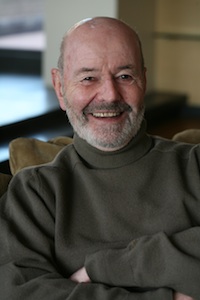
Philanthropist Henry van Ameringen gave $1 million to ‘In the Life,’ which has been described as the ’60 Minutes’ of LGBT news. (Photo courtesy Renna Communications)
The celebration of the show’s anniversary is already underway. The 20th season kicked off with a red carpet gala and an October 2011 episode that looked back at the history of the show. Kristel explains that “In the Life” began as a variety show hosted by lesbian comedian Kate Clinton, but that over time it evolved into a behind-the-desk news show with in-the-field reporting before assuming the short-form documentary format it has today. Over time, the award-winning show has also developed a robust online presence with web exclusives that supplement its television programming.
Kristel says the staff had a blast putting together the retrospective show. “It’s always fun for us to look at the old tapes. We had a lot of fun putting it together and taking in the depth and breadth of all that we’ve done over the years.” The anniversary celebration will culminate in the annual June Pride Brunch where supporters can “eat, drink and be merry” while watching New York’s Pride Parade from the windows of “In the Life’s” studios on Fifth Avenue in Manhattan.
When asked about the importance of the show, Kristel points out that the impact of the series goes beyond its television and online audiences. For example, this month’s episode, “Becoming Me,” which chronicles the lives of families dealing with transgender and non-gender-conforming children, is already becoming a resource for educators, parenting groups like PFLAG and social service agencies. Kristel says, “The show is a beautiful articulation of what we do really well, which is to take an issue and tell personal stories that relate to the issue and that make it tangible for our audiences. We worked on this piece for nine months and we were able to go in-depth with the eight families we interviewed and really understand their journeys.”
Kristel also cites the impact of the show on legislators and policy-makers. The two-part episode on HIV criminalization educated viewers about a little-known fact. “Very few people,” Kristel points out, “realize that in many places you can go to prison for attempted murder for having consensual sex if you are HIV-positive.” The first part of the episode, “Legalizing Stigma,” which aired in December 2010, was shown at the first-ever congressional hearing on HIV stigmatization and led to the introduction of legislation to rescind those laws. The second part, “Perpetuating Stigma,” which aired in February 2011, was shown at this year’s United Nations AIDS conference in Oslo and was referenced as a resource in the Oslo Declaration.
In addition, the celebrated web exclusive “Injustice at Every Turn” brought to life a report on transgender discrimination that was produced by the National Center for Transgender Equality and the National Gay and Lesbian Task Force. “The report was devastating,” Kristel said. “I read the report and I thought ‘people need to know about the profound levels of discrimination that transgender people are facing.’ But the fact of the matter is that very few people are going to read a report like that, so we produced a video that put a human face on these issues. That video was presented at the U.S. Department of Labor as a way of informing the department about discrimination in the workplace. This is one of the things we do well, to take an issue and put a human face on it and use it to move people to have a better understanding of the lives that people are living and the ways that people are impacted by social injustice and discrimination.”
Kristel is quick to point out that “In the Life” also produces some fun stories as well. A recent episode profiled the late Sam Steward, a sexual renegade, writer and pornographer. With a hearty chuckle, Kristel relates that “he started life as an English professor, but found that the life of an academic didn’t suit him particularly well. He left that to become a writer of erotica and a tattoo artist. Along the way, he documented, in some detail, his sexual escapades. He had a wooden card catalog that he called “The Stud File” with little cards and descriptions of everybody that he ever had sex with and with pertinent details about their physiques and their skills.”
Ameringen’s gift comes at a critical time for In the Life Media, allowing the organization to continue to deliver stories that document the lives of LGBT people and to explore the issues that affect them. About $100,000 of the donation will be used to match new and increased contributions. The balance will offer the organization a valuable opportunity to invest in its future.
Kristel says, “The media landscape has changed radically since we were first broadcast, not only in the way media is produced, but also the way that people consume media. What has remained constant is the power of media to shape the national dialogue. So we will be using this gift to make an assessment of the organization. We will be investing in digital initiatives that will allow us to not only improve our tools for engagement with our viewers but to give our viewers the tools to help us advance equality for LGBT people.”
“In the Life” airs locally on WETA and WMPB and programs can be seen at itlmedia.org/.
Books
‘Pronoun Trouble’ reminds us that punctuation matters
‘They’ has been a shape-shifter for more than 700 years

‘Pronoun Trouble’
By John McWhorter
c.2025, Avery
$28/240 pages
Punctuation matters.
It’s tempting to skip a period at the end of a sentence Tempting to overuse exclamation points!!! very tempting to MeSs with capital letters. Dont use apostrophes. Ask a question and ignore the proper punctuation commas or question marks because seriously who cares. So guess what? Someone does, punctuation really matters, and as you’ll see in “Pronoun Trouble” by John McWhorter, so do other parts of our language.

Conversation is an odd thing. It’s spontaneous, it ebbs and flows, and it’s often inferred. Take, for instance, if you talk about him. Chances are, everyone in the conversation knows who him is. Or he. That guy there.
That’s the handy part about pronouns. Says McWhorter, pronouns “function as shorthand” for whomever we’re discussing or referring to. They’re “part of our hardwiring,” they’re found in all languages, and they’ve been around for centuries.
And, yes, pronouns are fluid.
For example, there’s the first-person pronoun, I as in me and there we go again. The singular I solely affects what comes afterward. You say “he-she IS,” and “they-you ARE” but I am. From “Black English,” I has also morphed into the perfectly acceptable Ima, shorthand for “I am going to.” Mind blown.
If you love Shakespeare, you may’ve noticed that he uses both thou and you in his plays. The former was once left to commoners and lower classes, while the latter was for people of high status or less formal situations. From you, we get y’all, yeet, ya, you-uns, and yinz. We also get “you guys,” which may have nothing to do with guys.
We and us are warmer in tone because of the inclusion implied. She is often casually used to imply cars, boats, and – warmly or not – gay men, in certain settings. It “lacks personhood,” and to use it in reference to a human is “barbarity.”
And yes, though it can sometimes be confusing to modern speakers, the singular word “they” has been a “shape-shifter” for more than 700 years.
Your high school English teacher would be proud of you, if you pick up “Pronoun Trouble.” Sadly, though, you might need her again to make sense of big parts of this book: What you’ll find here is a delightful romp through language, but it’s also very erudite.
Author John McWhorter invites readers along to conjugate verbs, and doing so will take you back to ancient literature, on a fascinating journey that’s perfect for word nerds and anyone who loves language. You’ll likely find a bit of controversy here or there on various entries, but you’ll also find humor and pop culture, an explanation for why zie never took off, and assurance that the whole flap over strictly-gendered pronouns is nothing but overblown protestation. Readers who have opinions will like that.
Still, if you just want the pronoun you want, a little between-the-lines looking is necessary here, so beware. “Pronoun Trouble” is perfect for linguists, writers, and those who love to play with words but for most readers, it’s a different kind of book, period.
The Blade may receive commissions from qualifying purchases made via this post.

Friday, April 18
“Center Aging Friday Tea Time” will be at 2 p.m. on Zoom. This is a social hour for older LGBTQ+ adults. Guests are encouraged to bring a beverage of choice. For more details, email [email protected].
Go Gay DC will host “LGBTQ+ Community Social in the City” at 7 p.m. at Hotel Zena. This event is ideal for making new friends, professional networking, idea-sharing, and community building. This event is free and more details are available on Eventbrite.
Trans and Genderqueer Game Night will be at 6 p.m. at the DC Center for the LGBT Community. This will be a relaxing, laid-back evening of games and fun. All are welcome and there’ll be card and board games on hand. Feel free to bring your own games to share. For more details, visit the DC Center’s website.
Saturday, April 19
Go Gay DC will host “LGBTQ+ Community Brunch” at 11 a.m. at Freddie’s Beach Bar & Restaurant. This fun weekly event brings the DMV area LGBTQ+ community, including Allies, together for delicious food and conversation. Attendance is free and more details are available on Eventbrite.
LGBTQ People of Color Support Group will be at 7 p.m. on Zoom. This peer support group is an outlet for LGBTQ People of Color to come together and talk about anything affecting them in a space that strives to be safe and judgement free. There are all sorts of activities like watching movies, poetry events, storytelling, and just hanging out with others. For more information and events for LGBTQ People of Color, visit thedccenter.org/poc or facebook.com/centerpoc.
“Spark Sapphic Social” will be at 8 p.m. at Spark Social House. This weekly sapphic social is an opportunity to mix and mingle with other sapphics in D.C.’s newest LGBTQ bar. This event is free and more details are available on Eventbrite.
“DC Drag Brunch on Rooftop – Penthouse (Formerly at Lima Twist)” will be at 12 p.m. at Baby Shank Rooftop. Hosted by Miss Capital Pride, this is the ultimate drag brunch experience in Washington, D.C., featuring the fiercest queens around. Prepare to be entertained by glamorous drag queens and celebrated celebrity impersonators, including Taylor Swift, Lady Gaga, Beyoncé, Britney Spears, Nicki Minaj, Ariana Grande, Whitney Houston, Cher and many more. Tickets cost $27 and are available on Eventbrite.
Sunday, April 20
Queer Crayon Club will host “Queer Sketch Social” at 3 p.m. at Sinners and Saints. This is a fun event for LGBTQ+ adults to come together and color. Attendance is free and more details are available on Eventbrite.
Monday, April 21
“Center Aging Monday Coffee & Conversation” will be at 10 a.m. on Zoom. This is a social hour for older LGBTQ+ adults. Guests are encouraged to bring a beverage of choice. For more details, email [email protected].
Tuesday, April 22
Genderqueer DC will be at 7 p.m. on Zoom. This support group is for people who identify outside of the gender binary. Whether you’re bigender, agender, genderfluid, or just know that you’re not 100% cis – this is your group. For more details, visit www.genderqueerdc.org or Facebook.
Coming Out Discussion Group will be at 7 p.m. on Zoom. This is a peer-facilitated discussion group and a safe space to share experiences about coming out and discuss topics as it relates to doing so. For more details, visit the group’s Facebook.
Wednesday, April 23
Job Club will be at 6 p.m. on Zoom. This is a weekly job support program to help job entrants and seekers, including the long-term unemployed, improve self-confidence, motivation, resilience and productivity for effective job searches and networking — allowing participants to move away from being merely “applicants” toward being “candidates.” For more information, email [email protected] or visit thedccenter.org/careers.
Asexual and Aromantic Discussion Group will be at 7 p.m. on Zoom. This is a space where people who are questioning this aspect of their identity or those who identify as asexual and/or aromantic can come together, share stories and experiences, and discuss various topics. For more details, email [email protected].
Thursday, April 24
Virtual Yoga with Sarah M. will be at 7 p.m. on Zoom. This is a free weekly class focusing on yoga, breath work, and meditation. For more details, visit the DC Center for the LGBT Community’s website.
DC Anti-Violence Project Open Meeting will be at 7 p.m. on Zoom. This meeting is open to anyone interested in learning more and getting involved in lessening violence both within and directed towards the LGBT communities. For more information, visit Facebook or Twitter.
Movies
Heartfelt ‘Wedding Banquet’ remake a romcom worth seeing
Mishaps, crossed wires, conflicts are all part of the fun
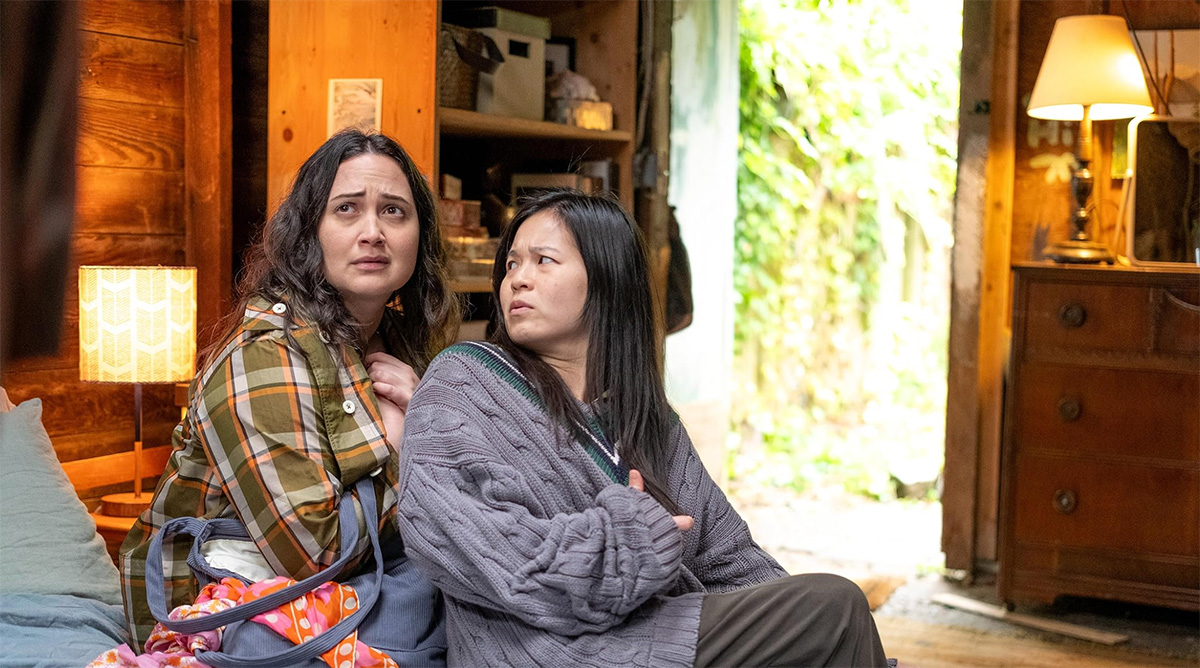
Creating a worthy remake can be a tricky proposition, especially when the movie being remade is a beloved classic – but that doesn’t mean it’s an impossible one.
Consider Andrew Ahn’s new version of 1993’s “The Wedding Banquet,” a film that put future “Brokeback Mountain” director Ang Lee on the proverbial map in America, which opens in theaters this weekend after a debut at Sundance earlier this year. The original, an American/Taiwanese production which became a surprise hit in the U.S., broke ground with its story — a culture-clash comedy of manners about a queer romantic triangle attempting to stage a sham wedding, it was quickly embraced by LGBTQ audiences thrilled to see representation on the big screen and positive representation, at that, in an era when it was even scarcer than it is today. To undertake a remake of such a film is a bold move, to say the least.
Yet gay Korean American writer/director Ahn (“Spa Night,” “Fire Island”) – has built his blossoming career on films about queer relationships among Asian American characters, with as much (or more) emphasis on family, both biological and chosen, as on romantic partnership; It seems natural, perhaps, for him to reinterpret this influential classic through his own lens, and he’s already proven himself as a filmmaker whose strengths line up perfectly with the material.
Even so, Ahn hedges his bets, perhaps, by collaborating on the new screenplay with James Schamus, who also co-wrote the original (along with Lee and Neil Peng), and the result is a movie that – although it recrafts the original romcom for a newer age and reconfigures its central relationships a bit to “up the ante” on its complications – stays relatively faithful to the broad strokes of its plot.
In this iteration, the New York setting is transposed to Seattle, and the plot revolves around not just one queer romance, but two: Chris and Min (Bowen Yang and Han Gi-Chan), a stalled grad student and his South Korean boyfriend, and their lesbian friends-and-landladies Lee and Angela (Lily Gladstone and Kelly Marie Tran), who are struggling to become parents through expensive IVF treatments. Min, an artist whose temporary visa is about to expire, wants to stay with Chris and build a life in America, but his grandmother (Youn Yuh-jung) – currently running the vast family business empire to which he is heir – wants him to come home and claim his place in the organization. A wedding to Chris would secure him the green card he needs to defy his grandmother’s demands, but it would also mean outing himself as gay and potentially being cut off from his inheritance. As a solution, he offers to pay for Lee and Angela’s fertilization procedure in exchange for a “green card wedding” with the latter, ensuring that he can remain in the U.S. while also remaining in the closet to his family.
Of course it’s an idea as bad as it sounds, but despite some reticence, the couples agree to the plan; but when grandmother decides to come to America and meet the bride in person, the four of them must attempt to pull off a masquerade that escalates far beyond their expectations after she insists on putting on a traditional – and elaborate – Korean wedding worthy of her grandson’s exalted status, all while wrestling with the ambivalence and doubts that begin to encroach on their relationships as the scheme begins to fray at the edges.
Those who’ve seen the original already know that things don’t play out exactly as planned – and anyone who hasn’t won’t be surprised when it doesn’t, anyway. We already told you it was a bad idea.
That, of course, is the charm of the romcom, a genre in which mishaps, crossed wires and conflicts are all part of the fun, and in any case it gives Ahn’s film the opportunity to explore – as Lee did with the original – the more serious and relatable challenges of reconciling our queerness with the deeply ingrained traditions of our cultural background; he does so with gentle wit and an equal measure of respect, but he’s not above getting laughs by pointing up the sheer absurdity that sometimes goes along with the process. Neither does he hesitate to delve into the messiness of queer relationships, even (and perhaps especially) with lifelong friends, or the deep insecurities and self-criticisms which get in the way of sorting them out.
To these ends, “Wedding Banquet” relies heavily on its cast, who embrace and clearly relish the chance to flesh out these characters. Yang brings his inevitable “SNL” star power to the table but downplays the wackiness in favor of a more nuanced tone, and Gi-Chan shines as his pragmatically idealistic partner; Gladstone’s intelligence and authenticity is a grounding force, while Tran counterpoints her with an eminently likable turn as her spunky-but-anxious misfit of a girlfriend – and the resonance they each bring to the prospect of motherhood highlights the longing for family and legacy that so many queer couples carry as they build their lives together.
It’s not all about the couples, though. Veteran Chinese American actress Joan Chen (“Tai Pan,” “Twin Peaks”) is a scene stealer as Angela’s hyper-supportive mom, whose participation in her daughter’s “lavender wedding” requires her to go against her deepest instincts as a proud ally, and Bobo Le provides a further connection to the theme of family with a charming performance as Yang’s tomboy-ish little sister. The anchoring performance, however, comes from acclaimed Korean star Yuh-jong, whose shrewd, savvy, and staunch portrayal of Gi-Chan’s power player grandma adds a much-needed dose of level-headed wisdom into the midst of the whirlwind.
In the end, Ahn’s update of Lee’s classic comedy scores big points for honoring the original’s message of acceptance and embracing the notion of reimagining our ideas of traditional family structures to meet the needs of an ever-changing world; it also succeeds in maintaining a heartfelt sense of empathy for each of its characters, all of whom appeal to us precisely because of their imperfections and their hangups. None of them are perfect, but all of them are perfectly human, which goes a long way toward making Ahn’s remake feel like more than just the slickly-made feel-good romcom it resembles.
And yet, given the screwball potential and the endless possibilities for farcical developments in the convoluted deception attempted by its sets of lovers, Ahn’s “Wedding Banquet” could have been funnier. Leaning into an idealized and sentimental perspective as it gracefully brings its characters’ lives into place, it occasionally feels a bit “precious,” too “Hollywood” to be believed.
Again, however, this is part of the charm of the romcom: if generations of straight audiences have gotten the chance to buy into idealized big screen fantasies about life and love, then why shouldn’t we enjoy the same privilege?
With that in mind, “The Wedding Banquet” makes for a perfect opportunity to entertain and validate ourselves – and even if it doesn’t tickle your funny bone, it’s a generous enough feast for your queer soul that it deserves you to see it.
Just make sure you bring somebody special to share your popcorn with.
-

 El Salvador3 days ago
El Salvador3 days agoGay Venezuelan makeup artist remains in El Salvador mega prison
-

 District of Columbia5 days ago
District of Columbia5 days agoReenactment of 1965 gay rights protest at White House set for April 17
-

 State Department2 days ago
State Department2 days agoHIV/AIDS activists protest at State Department, demand full PEPFAR funding restoration
-

 Opinions4 days ago
Opinions4 days agoScience must not be a weapon against trans people

